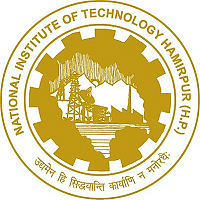Introduction about BSc in Cyber Security
BSc in Cyber Security is an undergraduate degree program designed to equip students with the
knowledge and skills necessary to protect computer systems, networks, and data
from cyber threats. With the increasing prevalence of cyber attacks and the
critical importance of data protection in today's digital age, this program
aims to prepare students for a dynamic and essential field in technology.
What is admission process for BSc in Cyber
Security?
The admission process BSc in Cyber Security can vary depending on
the country, the specific university, and whether you're applying as a domestic
or international student. However, here's a general overview of the typical
admission process:
1. Research and Preparation
Identify Suitable Programs
Research
universities and colleges offering BSc programs in Cyber Security.
Review their
admission requirements, curriculum, and available resources.
2. Check Eligibility Criteria
Academic Qualifications
Most programs
require a high school diploma or equivalent qualification.
Strong performance
in relevant subjects such as Mathematics, Computer Science, and Physics may be
preferred.
Minimum Grades
Universities often
have minimum GPA or percentage requirements for admission.
3. Standardized Tests (if applicable)
Entrance Exams
Some institutions
may require standardized test scores, such as the SAT, ACT, or specific
subject-related tests.
These requirements
can vary by country and at top university Assam.
4. English Language Proficiency
For non-native
English speakers, proof of English language proficiency is usually required.
Accepted tests
often include the TOEFL or IELTS.
5. Application Submission
Application Form
Complete and submit
the university's application form, usually available online through the
university's website.
Supporting Documents
Academic
transcripts and certificates from high school or any post-secondary education.
Standardized test
scores (if applicable).
Proof of English
language proficiency.
Letters of
recommendation (if required).
Personal statement
or essay explaining your interest in Cyber Security, career goals, and relevant
experiences.
Curriculum Vitae
(CV) or resume highlighting relevant skills and achievements.
6. Application Fee
Pay any required
application fee, which varies by institution.
7. Interviews (if applicable)
Personal Interview
Some universities
may require an interview as part of the admission process.
This could be
conducted in person, over the phone, or via video conferencing.
8. Admission Decision
Offer Letter
If accepted, you
will receive an offer letter from the university, typically via email or mail.
This letter will
include details about the program, any conditions of acceptance, and deadlines
for responding.
9. Acceptance and Enrollment
Acceptance
Respond to the
offer letter by the specified deadline, indicating whether you accept the offer
of admission.
What is syllabus for BSc in Cyber Security?
The syllabus BSc in Cyber Security typically covers a comprehensive
range of topics to provide students with both theoretical knowledge and
practical skills required to protect computer systems, networks, and data from
cyber threats. Here's an outline of a typical syllabus for a BSc in Cyber
Security, divided by academic years:
Year 1
Core Courses
Introduction to
Cyber Security
Overview of cyber
security concepts, terminology, and principles.
Understanding of
various types of cyber threats and attacks.
Computer
Fundamentals
Basic understanding
of computer hardware, software, and operating systems.
Introduction to
computer architecture and organization.
Programming
Fundamentals
Basics of
programming languages such as Python, Java, or C++.
Emphasis on writing
secure code and understanding common vulnerabilities.
Networking
Fundamentals
Introduction to
networking concepts, protocols, and network architectures.
Understanding of
TCP/IP, OSI model, and network security fundamentals.
Mathematics for
Cyber Security
Basic mathematics
relevant to cyber security, including discrete mathematics and probability at top college Assam.












